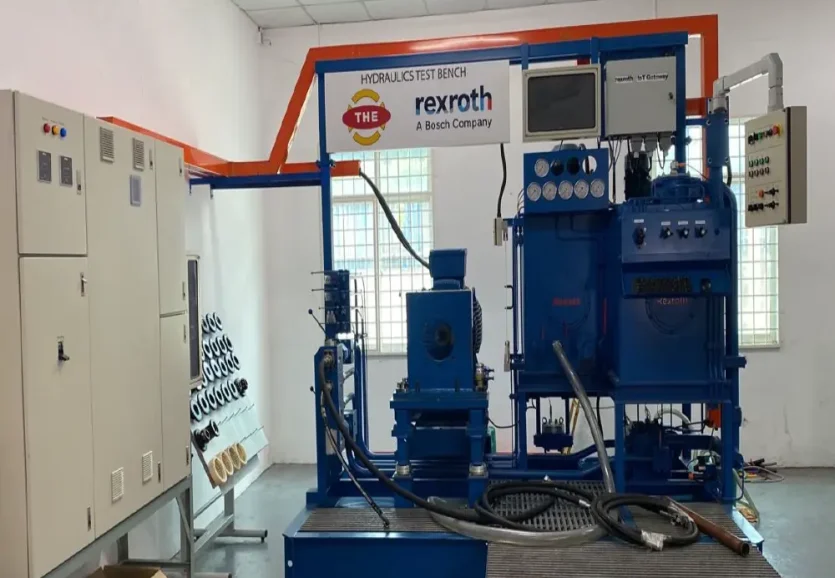Hydraulic System Assessment Station: Bench Testing Solutions
Hydraulic test bench is a piece of equipment used to test the performance, efficiency, and reliability of hydraulic components such as pumps, valves, cylinders, motors, and other hydraulic systems. It is a crucial tool in industries where hydraulic systems are prevalent, such as automotive, aerospace, construction, and manufacturing.
Hydraulic Power Source: The test bench is usually powered by a hydraulic power unit (HPU), which consists of a pump, motor, reservoir, filters, and valves. The hydraulic power unit generates the required hydraulic pressure and flow to operate the components being tested.
Control System: The test bench is equipped with a control system that allows the operator to regulate various parameters such as pressure, flow rate, temperature, and direction of flow. This control system can be manual, semi-automatic, or fully automated depending on the complexity of the testing requirements.
Instrumentation: Various sensors and gauges are installed on the test bench to monitor and measure different parameters during testing. This includes pressure gauges, flow meters, temperature sensors, and load cells. These instruments provide real-time feedback to the operator and help ensure accurate testing.
Test Fixtures: The test bench is equipped with fixtures or adapters to securely hold the components being tested in place. These fixtures are designed to accommodate different types and sizes of hydraulic components and ensure proper alignment during testing.
Safety Features: Hydraulic test benches are equipped with safety features to protect both the operator and the equipment being tested. This may include emergency stop buttons, pressure relief valves, overpressure protection, and safety interlocks.
Data Acquisition System: Many modern hydraulic test benches are equipped with data acquisition systems that record and analyze test data. This data can be used for performance evaluation, troubleshooting, and quality control purposes. Advanced test benches may also have built-in reporting features to generate test reports automatically.
Customization: Hydraulic test benches can be customized to meet specific testing requirements and standards. This may involve modifying the control system, adding specialized instrumentation, or integrating additional testing capabilities such as endurance testing or vibration analysis.



